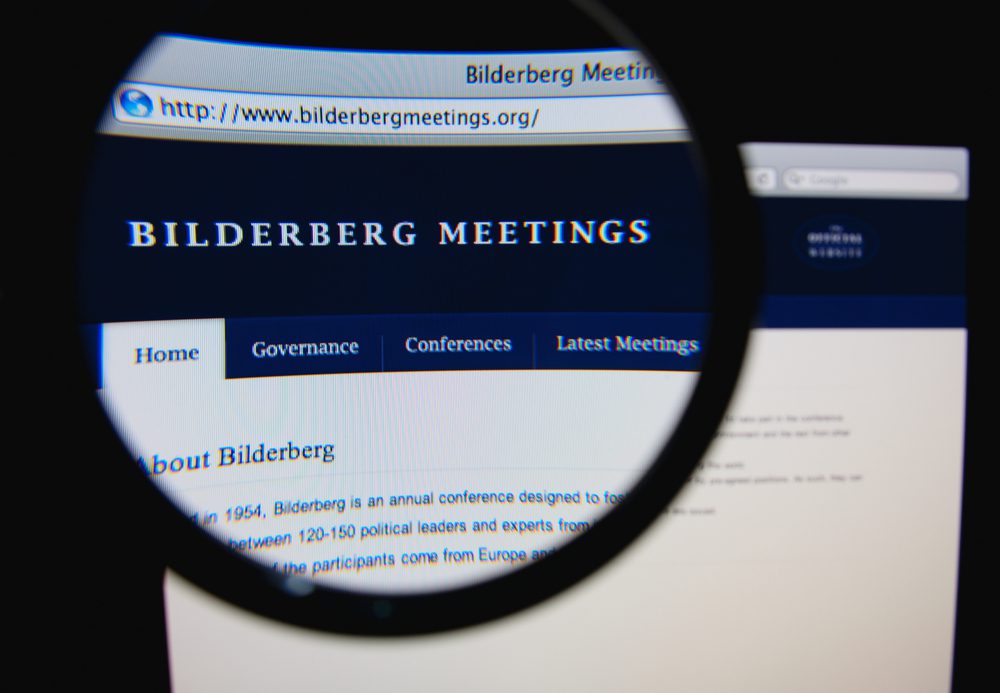
The creators of ChatGPT and key figures from the world of AI rubbed shoulders with global elites at the 69th annual Bilderberg Conference held in Lisbon this past weekend, as major players in the transatlantic relationship pondered the state of the world in the face of rising geopolitical tensions and technological disruption.
A camera-shy event for European and American elites, topics such as Ukraine, China, and AI technology dominated this year’s agenda as influential figures from the fields of business, politics, and technology gathered at the opulent Pestana Palace Hotel in Lisbon for the notoriously secretive three-day conference.
Henry Kissinger, NATO secretary-general Jens Stoltenberg, and Pfizer CEO Albert Bourla were among the guests of honour at the annual invitation-only gathering designed to facilitate off-record dialogue between “those who share an active interest in affairs relevant to the relationship between Europe and Northern America.”
Founded in 1954 by American billionaire David Rockefeller to promote closer ties between Europe and North America, the conference has often been accused of representing a shadowy cabal attempting to engineer a one-world government. The conference has been criticised for having an accountability problem, comparable to the WEF at Davos, and is regarded by many as a venue for Atlanticist elites to hatch secretive plans.
A partial guest list revealed 130 participants in attendance running the gamut of Big Tech, journalism, and state institutions, with the EU represented by President of the European Parliament Roberta Metsola, foreign policy chief Josep Borell, as well as Commission officials.
Among the attendees was Dutch Prime Minister Mark Rutte, whose government has come under fire for its harsh anti-farmer politics at the behest of the climate lobby that, some have argued, feed into wider globalist plans for managed de-growth.
BILDERBERG – This is the Dutch finance Minister Sigurd Kaag. Refusing to answer any questions about her secret meetings at Bilderberg.
— Bernie's Tweets (@BernieSpofforth) May 21, 2023
Opaque shady meetings don’t serve the people, they serve something else entirely.
pic.twitter.com/iKBdP3Z4O0
The conference operates under Chatham House Rules which precludes attendees from disclosing comments made, but the conference’s agenda becomes obvious through its guest list, which was top-heavy with AI experts. OpenAI CEO Sam Altman, Microsoft CEO Satya Nadella, Google DeepMind chief Demis Hassabis, and former Google CEO Eric Schmidt were among those attending. Last week Altman, whose company has pioneered chatbot technology with ChatGPT described how newly invented AI technologies could undermine next year’s presidential elections in America when he testified before a senate hearing on AI.
Both EU and American lawmakers are grappling with AI regulation at the moment, with the technological revolution expected to be a game changer for the world economy and international relations.
MEP Radoslaw Sikorski won't comment on Nord Stream tweet during #Bilderberg arrival pic.twitter.com/0F04EKvPRA
— Josh Friedman (@FreeManReporter) May 19, 2023
Western elites fear that China is gaining the upper hand in the race for the AI revolution in particular, as Reuters reports that Beijing is barely phased by new microchip embargoes meant to hobble its economic advances.
Global elites are looking to manage disruptions caused by AI technology with automation fears and risks to the current geopolitical landscape—first and foremost, among the concerns.
Last year’s conference in Washington D.C. heard from experts on navigating the post-pandemic environment and featured topics such as combatting disinformation and managing American strategic realignment towards the Indo-Pacific.
